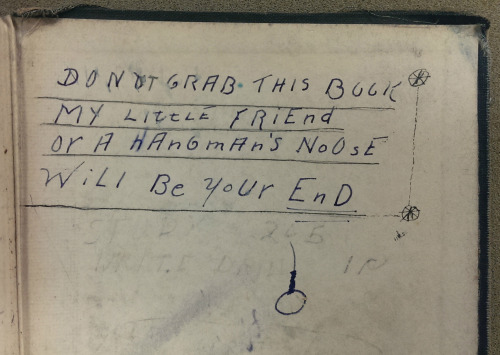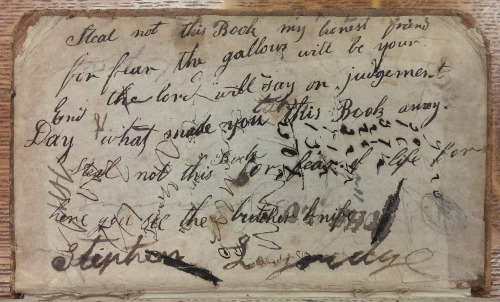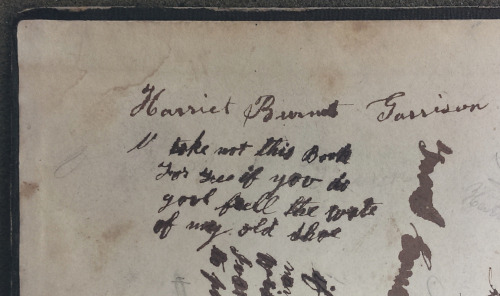msuprovenance: It is not uncommon to find threats of violence, capital punishment, and divine retrib
msuprovenance:It is not uncommon to find threats of violence, capital punishment, and divine retribution in ownership inscriptions, especially those of children in the 18th, 19th, and early 20th centuries. The book curses shown here represent only a small sampling of the incantations against theft we’ve come across in our extensive collection of early American textbooks. Most of the verses are formulaic, and show up in one form or another across state and national borders, spanning decades or even centuries. They are passed down from book to book, generation to generation, in the way of most “underground” folk knowledge.Here are transcriptions of the verses shown above. I’ve cleaned up the formatting a bit to make them easier to read.The first is found in a 1929 textbook on English grammar and composition:Do not grab this bookMy little friendOr a hangman’s nooseWill be your endThe second, in a math text published 100 years earlier, also promises death by hanging, but incorporates other threats as well:Steal not this Book my honest friendFor fear the gallows will be your endThe Lord will say on Judgement DayWhat made you take this Book awaySteal not this Book for fear of lifeFor here you see the butcher knifeThe life + knife rhyme is a common theme, showing up in this 1867 grammar book as well:Steal not this bookFor fear of your lifeFor the owner carriesA big jack knifeThe threat in this 1847 English reader isn’t from a knife, but from something a little less deadly:Take not this book, youYes if you doYou’ll feel the wate [weight?]Of my old shoeIn the final inscription, from an 1821 arithmetic text, any pretense of rhyme or meter begins to break down by the end, and the verse devolves into a direct threat of bodily harm against the would-be book thief:Steal not this book for fear of shameFor hear [sic] you’ll see the owner’s nameIf you do you may expect a thumpt side of your head as hard as I can draw: and that won’t be all and if I can kick your ___ I willAmusingly, a later reader seems to have gone over this inscription with a pencil and corrected the previous owner’s spelling in several places. It also appears that the later editor may have rubbed out an offensive word from the original. -- source link
Tumblr Blog : msuprovenance.tumblr.com
#books




